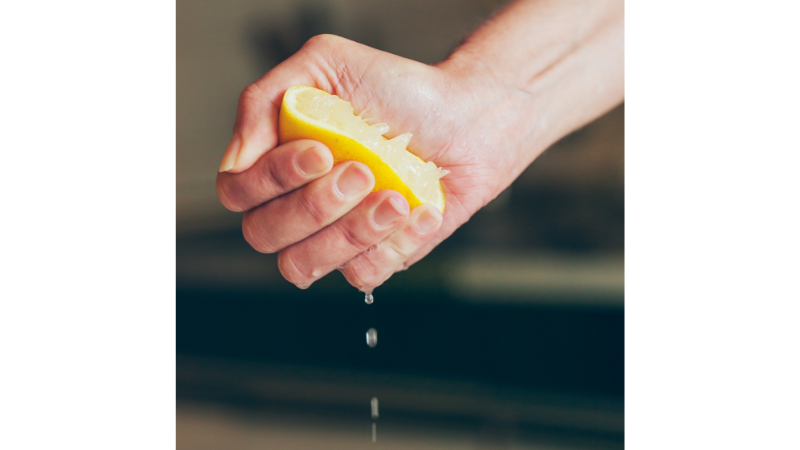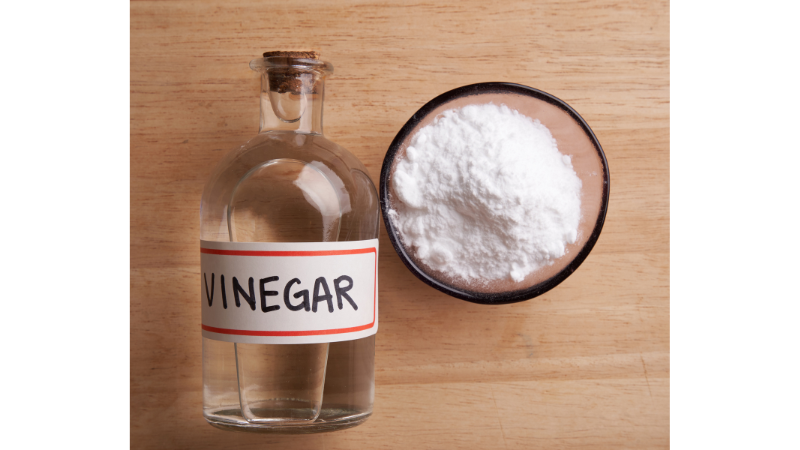Baking soda, vinegar, and lemon juice can be used as alternatives to dish soap. These natural ingredients effectively cut through grease and grime.
Seeking an alternative to traditional dish soap? Whether it’s due to an unexpected run-out or a desire for a greener cleaning method, there are several household items you might consider. Baking soda emerges as a gentle yet powerful abrasive cleanser, perfect for scrubbing away tough stains.
Vinegar, known for its disinfecting properties, can effortlessly break down grease and odors. Lemon juice, with its high acidity, shines in removing stubborn food remnants and leaves a fresh, clean scent. These alternatives not only ensure a thorough cleaning but also offer eco-friendly benefits, promoting a safer home environment. By embracing these substitutes, you harmonize effective dish cleaning with natural, chemical-free solutions.
Natural Alternatives To Dish Soap
Natural alternatives to dish soap offer eco-friendly cleaning solutions. Many everyday household items can take on the challenge of dishwashing. No dish soap, no problem. Natural ingredients can keep your plates sparkling clean and be gentle on the environment.
Lemon Juice
Lemon juice harnesses the power of natural acidity. It cuts through the grease and leaves a fresh scent. Here’s how to use it:
- Mix lemon juice with warm water.
- Soak dishes for a few minutes.
- Scrub gently with a sponge or cloth.
- Rinse with clean water.

Vinegar
Vinegar is a versatile cleaning agent. Its acidic nature can tackle soap scum and hard water spots. For best results:
- Combine equal parts of vinegar and hot water.
- Let the dishes soak.
- Use a non-abrasive sponge to clean them.
- Rinse dishes thoroughly.

Baking Soda
Baking soda works well for tough grime. It’s a gentle abrasive and a natural deodorizer. Follow these steps:
| Step | Instruction |
|---|---|
| 1. | Sprinkle baking soda on the dishes. |
| 2. | Add a bit of hot water to form a paste. |
| 3. | Scrub with a soft brush or sponge. |
| 4. | Rinse with warm water. |
Other Household Alternatives
Encountering an empty bottle of dish soap can bring dishwashing to a standstill. Fear not! Various household alternatives are standing by, ready to tackle those greasy pots and pans. Each available option provides a unique approach to getting dishes sparkling clean without traditional dish soap.
Castile Soap
Castile soap, a gentle yet effective cleaner, is crafted from plant oils. It cuts through grease and cleans dishes without harsh chemicals. To use, add a few drops to your dishwater. You’ll find that it creates a mild, skin-friendly sudsing action perfect for everyday use.
Dishwashing Liquid
Contrary to its name, dishwashing liquid isn’t just for automatic dishwashers. Dilute a small amount into a sink filled with hot water. It’s more concentrated than regular dish soap, so you only need a teaspoon to tackle a full load.
Hand Soap
Hand soap is another convenient swap. Best for light cleaning jobs, it’s milder than other alternatives. Squeeze hand soap onto a sponge or directly into water. Take note: it may not be as potent against hardened grease.
Consider these alternatives and keep your kitchen workflow uninterrupted. Remember to rinse dishes thoroughly after cleaning to ensure all soap residue is washed away. Happy dishwashing!

Eco-friendly Options
As we become more eco-conscious, finding alternatives to traditional dish soap is key. Eco-friendly options not only help the environment but can also be kinder to our skin and overall health. Let’s explore some of these sustainable substitutes for keeping your dishes sparkling clean.
Bar Soap
If you’re thinking of ditching liquid soap, bar soap is a fantastic place to start. Made with simple ingredients, biodegradable bar soaps contain fewer chemicals. Choose unscented bars or those with natural essential oils for a gentle, effective clean. Simply rub your dish brush or sponge on the bar and then tackle those dishes as usual.
Homemade Dish Soap
Creating your dish soap means control over what goes in it. Simple recipes often combine baking soda, castile soap, and essential oils. This mix fights grease and grime without harsh chemicals. See the recipe below:
- 1 part castile soap
- 1 part water
- A few drops of lemon or eucalyptus oil
Soap Nuts
Ever heard of soap nuts? These berries produce a natural soap called saponin. Soap nuts are 100% organic, reusable, and safe for sensitive skin. Pop a few in a cotton drawstring bag, soak in warm water, and press to release the soap. The solution works wonders on dirty dishes. Bonus: soap nuts can also be used for laundry!
Tips For Using Alternatives
Running out of dish soap might not be a big deal after all. Creative and effective alternatives could save the day.
Finding a dish soap substitute can seem daunting. The key is understanding how to use each alternative effectively. Remember, not all replacements work the same way as your regular dish soap. Below are essential tips to consider when switching to alternatives.
Dos And Don’ts
- Do: Opt for mild, non-toxic alternatives. These ensure safety for your dishes and your health.
- Don’t: Use anything with harsh chemicals. They could damage surfaces or leave harmful residues.
- Do: Test a small amount. Always see how it works on a single dish before washing a full load.
- Don’t: Mix cleaners without proper knowledge, as some combinations can be dangerous.
Proper Ratios
Using the correct ratios is vital to avoid damage to dishes or creating ineffective solutions. Below is a quick guide:
| Alternative | Mix Ratio | Instructions |
|---|---|---|
| Baking Soda | 3 to 1 with water | Apply with sponge and rinse thoroughly. |
| Vinegar | Equal parts water | Soak for 10 minutes, then scrub. |
Storing Alternatives
Proper storage ensures the longevity and potency of your alternatives.
- Keep in air-tight containers, as exposure to air can reduce effectiveness.
- Label clearly to avoid any mix-ups.
- Store in a cool, dry place away from direct sunlight.
Considerations Before Switching
Before you swap out your regular dish soap, think about a few key points. Your choice should not only clean well but also suit your household’s needs and values. Let’s explore these considerations in depth.
Effectiveness
Dish soap alternatives must tackle grease and food residue efficiently.
- Baking soda and vinegar can break down tough grime.
- Castile soap is a gentle yet efficient cleanser.
Test small batches to find what works best for your dishes.
Scent Preferences
Scents play a role in the dishwashing experience. Choose options that align with your scent preferences:
| Alternative | Natural Scent |
|---|---|
| Lemon juice | Citrusy freshness |
| Essential oils | Customizable aromas |
Pick a scent that makes your kitchen smell inviting.
Environmental Impact
Consider the environmental impact.
- Look for biodegradable options.
- Avoid chemicals that harm aquatic life.
Eco-friendly choices preserve our planet for the future.
Frequently Asked Questions
What Are Natural Dish Soap Alternatives?
Baking soda and vinegar work well as natural dish soap substitutes. They break down grease and leave dishes shiny. Combine them in equal parts for an effective mixture.
Can You Wash Dishes With Baking Soda?
Yes, you can clean dishes with baking soda. Sprinkle baking soda on a damp sponge. Scrub your dishes as usual. It’s abrasive and removes tough food residue easily.
Is Vinegar Effective For Dishwashing?
Vinegar is a great dishwashing agent due to its acidity. Use it to rinse dishes after washing. It helps sanitize and remove odors. Don’t mix it with bleach.
How Can Lemon Juice Replace Dish Soap?
Lemon juice contains citric acid, which is a natural degreaser. Apply it directly to stains or mix it with water. It cuts through grease and adds a fresh scent.
Conclusion
Embracing alternative dish soap solutions can be a game-changer for your cleaning routine. Not only does it empower eco-friendly choices, but also ensures that you’re never stuck without a cleaning agent. Get creative and let these tips guide you towards a sparkling, sustainable kitchen.
Next time your soap dispenser runs dry, confidently reach for these savvy substitutes.











